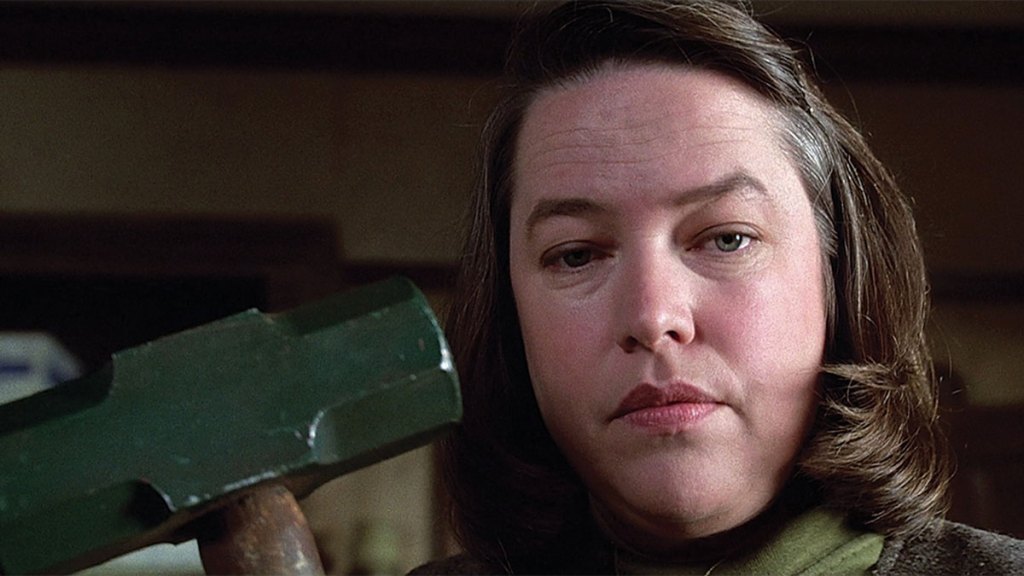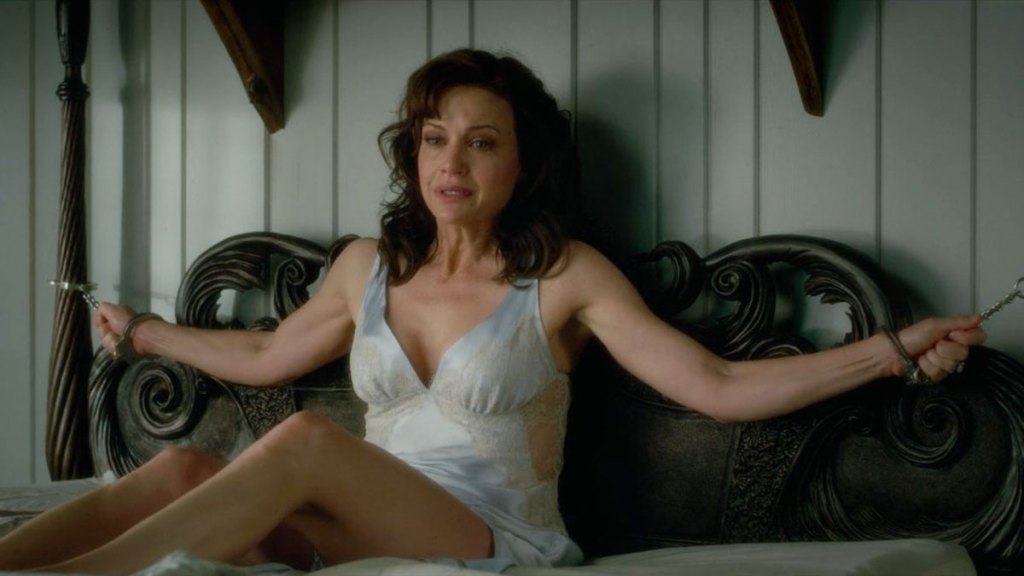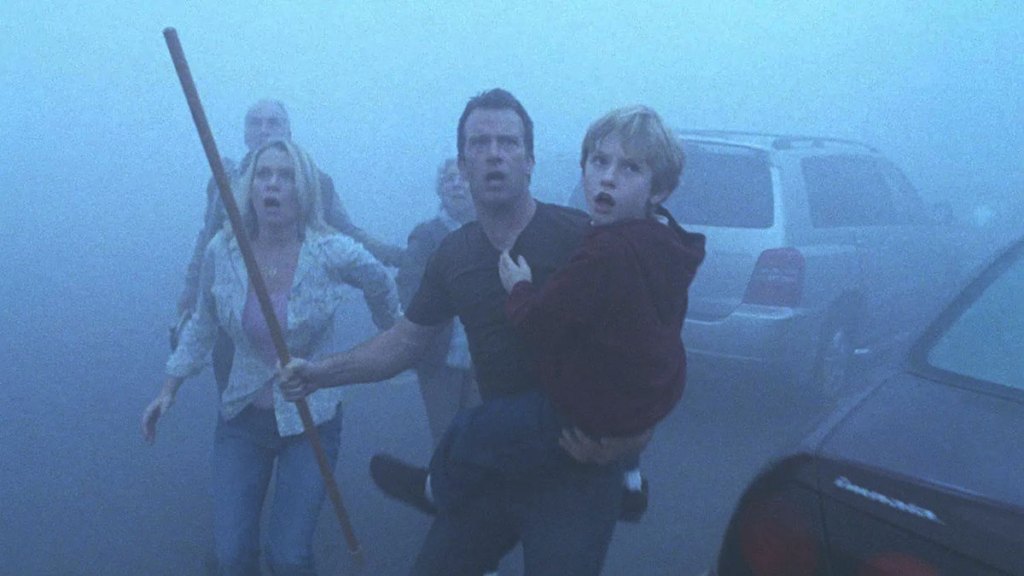Everyone knows that there are several adaptations of Stephen King’s work, starting with 1976’s two-time Oscar-nominated Carrie from director Brian De Palma and still going strong today. Osgood Perkins’ The Monkey, based on King’s short story, arrives in theaters on February 21, with many more projects on the way, including Mike Flanagan’s The Life of Chuck. King movies range from the truly terrible to some of the biggest classics in cinema history, with a few silly yet delightful cult classics in the mix (see: Maximum Overdrive). There are a few differing opinions on which adaptations should be placed at the very top of the list, especially considering that King has also dabbled in other genres and is not only the master of horror, widening the audience pool.
Videos by ComicBook.com
A few perfect King feature adaptations have already been remade, such as Carrie, Pet Sematary, and The Dead Zone, when it was turned into a popular series starring Anthony Michael Hall. On rare occasions, there have been remakes that turned out better than the original (though some would argue otherwise), like in the case of Andy Muschietti’s first IT film in 2017 starring Bill Skarsgård vs. the 1990 miniseries. Then, there are classic King movies that are so obviously untouchable and the perfect iteration of the story that anyone would be asinine to consider remaking them, including The Shining, The Shawshank Redemption, Stand by Me, and The Green Mile.
What three other perfect Stephen King movies should remain the only feature adaptations of that story to exist, then? Continue below to find out!
Misery (1990)

Anyone who has never seen director Rob Reiner’s Misery needs to immediately rectify that. Every bit of this adaptation is perfect, from Reiner’s directing, William Goldman’s writing, the editing, the score, James Caan’s take on the tortured author Paul Sheldon, and, of course, Kathy Bates’ Oscar-winning performance as Paul Sheldon’s #1 fan and captor, Annie Wilkes.
When Paul Sheldon crashes his car on a snowy mountain, he is fortunately rescued by a local named Annie Wilkes, who witnessed the accident. Annie takes Paul in to care for him as he heals from his injuries, promising she will call for help once the phones are back up and the roads are clear from the blizzard. Unfortunately, Paul realizes Annie has been intentionally isolating him because she is an obsessed fan who never plans on letting him leave — and wants him to write the perfect new novel for her favorite fictional character, Misery.
[RELATED – The Monkey: Gruesome First Clip Released for New Stephen King Movie]
Misery was Reiner’s second King adaptation, following his 1986 movie Stand by Me, inspired by the novella “The Body.” He is one of three directors who have made multiple King movies that all turned out excellent, and they’re all represented here. Every aspect of Misery is carefully constructed and infused with a handful of funny moments that never overshadow the bleak and dangerous situation Paul is trapped in. Bates and Caan raised the bar as screen partners in this flawless take on King’s dark tale; another version would never do it justice.
Gerald’s Game (2017)

Not only has Mike Flanagan firmly established himself as another master of horror in the movie and TV world, but he is also one of the few filmmakers who have consistently made good Stephen King adaptations. The writer/director certainly enjoys a challenge, and one of the biggest magic tricks he’s ever pulled came in 2017 with Netflix’s Gerald’s Game. On paper, King’s suspense novel should have never worked on-screen, especially since most of it takes place in the mind of one character trapped in a bedroom.
The psychological horror-thriller follows a woman named Jessie (Carla Gugino) and her husband Gerald (Bruce Greenwood) to a remote lake house where the couple is attempting to spice up a dying marriage. Gerald suggests adding some kink to the bedroom and handcuffs Jessie to the bed frame. An argument after Jessie expresses her distress when things escalate into rape fantasy territory ends when Gerald suddenly has a fatal heart attack. Jessie, still handcuffed, is left alone in a fight for survival, with only Gerald’s body, traumatic childhood memories, hallucinations, a wild, hungry dog, and a mysterious man — who may or may not be real — hiding in the shadows of the bedroom to keep her company.
Gugino and Greenwood are two of the familiar faces found in various Flanagan series and movie projects. There are reasons he regularly works with the same performers, one of them being that he has a knack for collaborating with excellent actors like Gugino and Greenwood, who deliver gold with every role (the two most recently starred together in Flanagan’s Netflix limited series The Fall of the House of Usher). In the same sense that no one else could have made a fantastic movie version of this novel, a huge part of its success is thanks to Greenwood and, especially, Gugino. She tackles every emotional and complicated aspect of Jessie’s past and predicament, even perfectly playing off of herself. In the same way Flanagan pulled off a miracle with The Shining sequel Doctor Sleep, his is the only filmic final word on Gerald’s Game.
The Mist (2007)

Frank Darabont is another mastermind of perfecting King’s work on the big screen. His third feature based on a King novel, The Mist, followed his Oscar-nominated hits The Shawshank Redemption and The Green Mile. Stepping away from prison dramas, Darabont took on King’s sci-fi horror tale starring Thomas Jane (another King alum who has appeared in many adaptations inspired by the author’s stories) and boasting one of the best, most satisfyingly shocking endings to a horror movie ever.
In The Mist, David Drayton (Jane) and his son take shelter inside a grocery store alongside several members of a small community when a dense, unyielding fog rolls in following a severe thunderstorm. What keeps almost everyone inside the store is the deadly threat of large, monstrous creatures looming in the fog. Like all King stories, The Mist is more interested in the characters than what they are being confronted with, specifically how they respond in difficult or terrifying situations. This results in the biggest threat not being the strange monsters outside, but some of the humans inside the store, particularly religious zealot Mrs. Carmody, played by Marcia Gay Harden.
Humans being capable of being the greatest monsters is not an uncommon trope (and true in reality), but the theme’s familiarity works exceptionally well in this movie. The trapped, isolated setting of the grocery store surrounded by a wall of fog you can’t see through, along with the desperation of survival, fear of the unknown, and increasing paranoia, is a perfect powder keg that goes off several times, leaving behind bloodshed. Harden is excellent as the horrific Mrs. Carmody, and Jane plays the story’s protective father and flawed hero in an impossible situation to great effect. Featuring a solid cast, engaging characters, terrifying sequences, and an ending that still gets talked about nearly 20 years later, Darabont’s The Mist was the only feature adaptation we needed.








